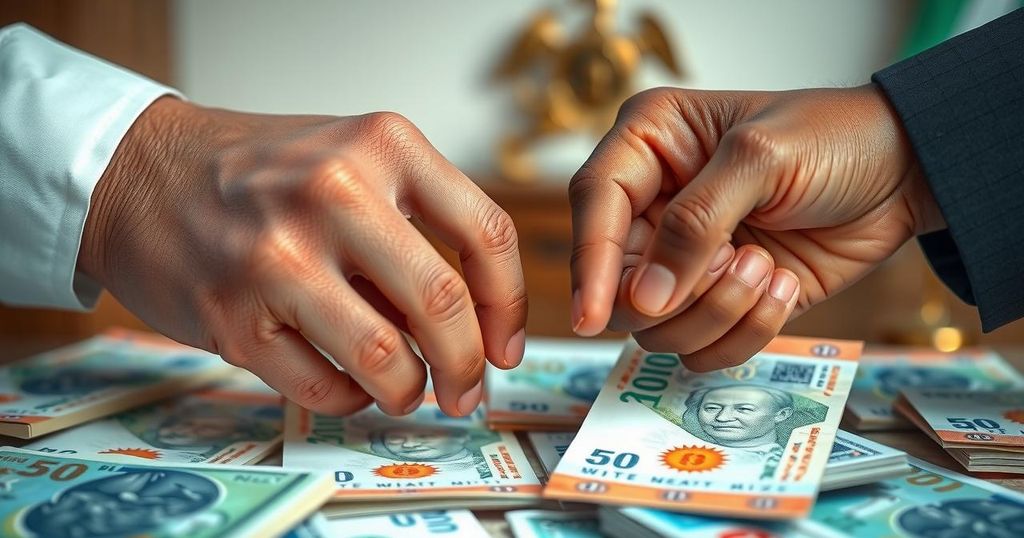China and Nigeria Renew $2 Billion Currency Swap Amid U.S. Tariff Threats

China and Nigeria have renewed a $2 billion currency swap arrangement for three years, aimed at facilitating trade and reducing reliance on the U.S. dollar. This comes amid tariff warnings from Donald Trump, who urged BRICS nations to maintain dollar usage. The Nigerian economy faces ongoing challenges, including significant currency depreciation, raising questions about the effectiveness of such swaps amid broader economic pressures.
The currency swap arrangement between China and Nigeria, renewed for an additional three years, is valued at $2 billion and aims to bolster financial cooperation and enhance trade by utilizing local currencies. Despite tariff threats from U.S. President-elect Donald Trump, who warned BRICS nations against departing from the dollar, Nigeria and China continue to strengthen their economic ties. The agreement seeks to alleviate reliance on the U.S. dollar, offering liquidity to both Chinese and Nigerian businesses while addressing Nigeria’s ongoing currency depreciation challenges.
In 2018, Nigeria and China established a $2 billion currency swap to facilitate trade and investment. The renewal of this agreement in light of Donald Trump’s recent tariff warnings underscores a growing trend among nations to explore alternatives to the U.S. dollar, particularly within the BRICS framework. Nigeria’s currency, the naira, has faced substantial depreciation, prompting efforts to stabilize it and reduce dependency on dollar-denominated transactions through initiatives like currency swaps.
The renewal of the $2 billion currency swap between China and Nigeria demonstrates a strategic move to foster economic resilience against external pressures, particularly in light of U.S. tariff threats. While this arrangement provides immediate liquidity and trade facilitation, the ongoing depreciation of the naira raises critical questions about the effectiveness of such monetary strategies. Ultimately, broader economic reforms may be necessary to achieve lasting stability for Nigeria’s currency.
Original Source: news.bitcoin.com








